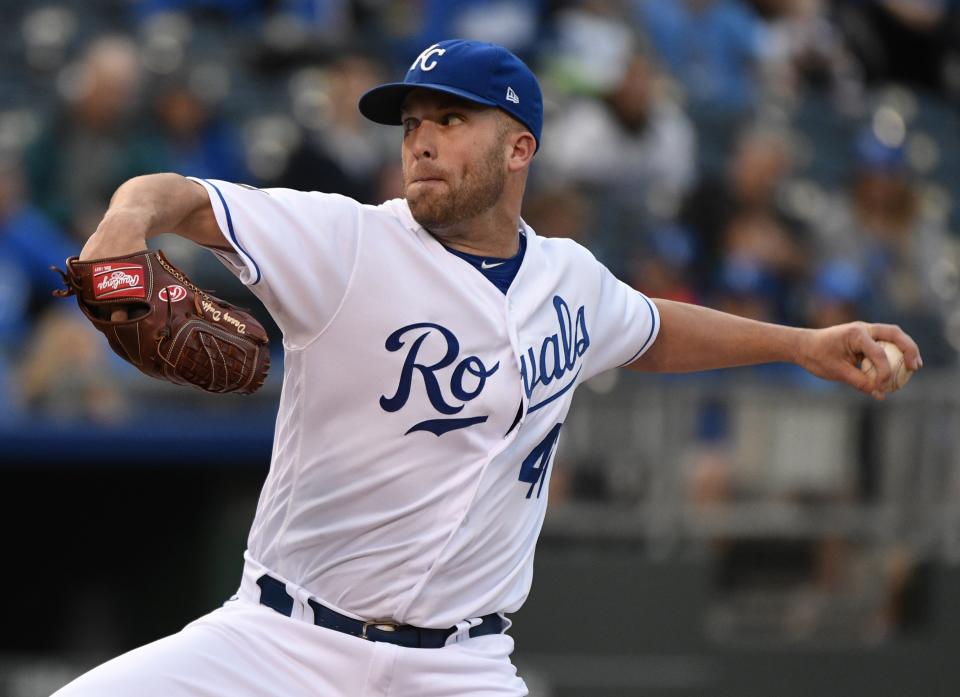It's time for MLB to institute a DUI policy
KANSAS CITY, Mo. – Every time a Major League Baseball player is charged with driving under the influence, it’s a reminder that baseball, the sport that has lost more players to intoxicated accidents than any, has no formal policy regarding DUIs. For a sport that laments each burial of its own and vows to change, it’s an unconscionable duplicity, a breach of responsibility from the league and players’ association that together could do with action what mere words never will.
Suspending players for operating vehicles under the influence of alcohol or drugs will not end the scourge of such dangerous behavior. The cocktail of money, privilege, entitlement and opportunity is too strong to purge completely. Anything to give players another reason to reconsider their actions, though, would be a step in the right direction, an easy way to turn moralizing prattle into potentially substantive deterrence.
The latest DUI came Sunday, when suburban Kansas City police cited Danny Duffy in a Burger King parking lot, barely eight months after his friend and teammate, Yordano Ventura, died in a car accident in the Dominican Republic. While the toxicology report on Ventura was not released, his death followed that of Jose Fernandez, which followed that of Oscar Taveras, which followed that of Josh Hancock, which followed that of Tim Crews and Steve Olin. Each died in an accident involving alcohol or drugs. Dozens more minor leaguers have lost their lives in crashes.
Duffy was lucky. He suffered only the embarrassment of his actions, for which he apologized Tuesday. The Royals could pursue discipline against him, though the likelihood of them doing so – and courting a fight with the Major League Baseball Players Association, which undoubtedly would contest any suspension – is infinitesimal. No matter how disappointed Royals general manager Dayton Moore was, no team would pick a protracted fight against one of its core players.

Which is the sort of thing that screams for a league-wide policy to inure teams from the personal responsibility of doing what’s right. If that sounds absurd, it is. That it happens to be the reality of baseball’s situation is proof MLB and the union need to address this issue in the same manner they did domestic violence.
Originally, the union blanched at a domestic-violence policy of any kind, fearful the inclusion of off-the-field behavior in discipline would open a Pandora’s box to sanctioning all off-field conduct. It hasn’t. On the contrary, baseball’s domestic-violence policy is seen as relatively fair and representative of both parties, proof that when MLB and the union work toward making their game better and safer, all can benefit.
This is not some sort of an invitation for MLB to turn into the NFL, where Roger Goodell metes out punishment as though the league is his banana republic. Even though the domestic-violence policy has behooved baseball, the union still fears the idea of a DUI suspension paving a slippery slope for other discipline. What, then, would prevent the league from pursuing a suspension when a player gets into a bar fight or shoplifts?
The concern is valid. Despite the coming quarter century of labor peace, mistrust exists between the union and MLB. At the same time, DUI is so universally reviled, and baseball’s history with it so unfortunate, that anyone trying to conflate that crime with something more petty and less potentially injurious to others would face rightful pushback.
DUI suspensions would go a little of the way toward righting baseball’s discipline imbalance, too. An 80-game suspension for performance-enhancing drug use, a 40-or-so-game suspension for domestic violence and no discipline whatsoever for driving drunk or boating high? Major League Baseball’s priority may laser in on the integrity of the on-field product, but the disregard for how its most visible employees conduct themselves while operating multi-ton hunks of metal is unacceptable.
Moore, the Royals’ general manager, agrees. “That warrants a lot of discussion, truthfully,” he said. Two other GMs said essentially the same. And if there is even the slightest groundswell, the question then becomes: Who, exactly, is against this? If MLB really were to press the issue publicly – if commissioner Rob Manfred were to say he believes the league needs a DUI policy with the rigor to match its domestic-violence policy – would union head Tony Clark be able to push back against that in a convincing enough fashion to satisfy not just the public but a membership that has seen so many deaths?
Perhaps the talk of suspension sounds better than the reality. After all, players still use PEDs, and that’s with an 80-game ax hanging over their heads. The prospect of, say, 15 games for a DUI conviction or no-contest plea may not be enough to affect any change at all. But for a sport that breeds this bubble of privilege to have not even the slightest lever in place to discourage them from ignoring the rules that still exist outside of it is wrong, and it’s irresponsible, and it’s tacit approval for the actions killing young men they know and love.
Baseball can’t stop DUIs and it won’t stop DUIs. Maybe it can put more behind it than empty words to show how much it cares.

 Yahoo Sports
Yahoo Sports 

